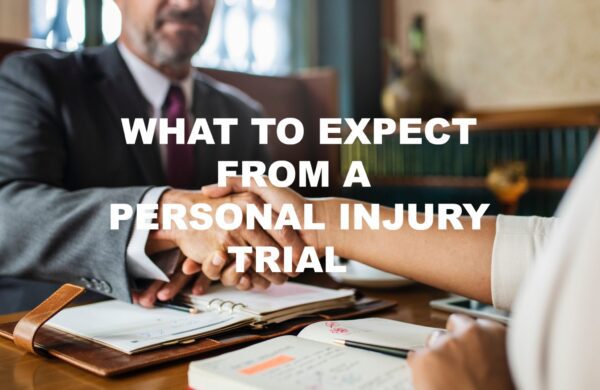
If you’ve suffered a personal injury and you decide to contact an attorney, you will have the option to settle or to go to trial. In personal injury settlements, the prime objective of every attorney representing an injured party is to ensure that the client who was injured through negligence is awarded maximum compensation. Going to trial may be your best bet if insurance companies and adjusters refuse to offer you full compensation to settle your case. In order for maximum compensation to be awarded, personal injury attorneys, in consultation with their client, outline a strategy for bringing the case to trial. Going to trial for a personal injury case will be weighed against any out-of-court settlement offers. Nevertheless, from the onset, an experienced personal injury attorney will proceed and prepare for a trial verdict.
What to Expect When Going to Trial for a Personal Injury
Verdicts in personal injury trials are made by a judge or jury, who must render a decision based upon a “preponderance of the evidence” against the defendant as presented during the trial. Careful examination of the evidence will determine if a defendant should and can be legally held responsible for the injuries to the plaintiff. Going to trial for personal injury allows the injured party to present their case in a court of law. If it does go to trial, it’s done with the intention of receiving a favorable judgment against the defendant and receiving compensation greater than that offered in a settlement. Whether or not the case goes to trial, and statistically, 95% of all personal injury cases do not, the number one tip for the injured party is having your claim in the hands of an attorney who is not only willing to go to trial, but one who understands the importance of preparing your case as though you are going to trial from day one.
Parts of a Personal Injury Trial
- You need to make sure that your personal injury attorney is a trial lawyer, too. Though an attorney may advertise as a trial lawyer, some rarely see the inside of a courtroom. Because of the statistical preponderance of personal injury cases being settled out-of-court, if your lawyer only handles personal injury cases, there’s a chance that settlement offer may be accepted to avoid the time, expense and stress of a trial. Make sure the attorney you hire to represent you know more than just negotiating a settlement. The attorneys at Hardy, Wolf & Downing are all trial lawyers that believe in getting their clients their maximum compensation, even if that means going to trial.
- Going to trial also means the burden of proof is on you, the plaintiff. Therefore, preserving evidence is vital for successfully proving your case. You and your personal injury attorney will start gathering the evidence as soon as possible after the accident. Going to trial in a personal injury case can take upwards of a year or more. Evidence can be misplaced, misfiled, or lost. Witnesses can move away. Memories fade over time. Therefore, in order to ensure a winning verdict, act to preserve as much evidence as you can. This includes taking photographs of the accident scene and injuries (if possible or as soon as possible),know the accident location, i.e., the property or street, get witness contact information and relevant statements right away, and if available, get a copy of any video surveillance that may have recorded the accident or incident.
- Going to trial also means testifying in court before the judge and a jury. The prospect can be unnerving. Most people have little opportunity or occasion for public speaking, doing so in a court of law can be an intimidating experience. Telling your story with confidence is part of the preparation process. You and your attorney will practice and practice and practice! Speak up clearly and answer questions directly. Anxiety or intimidation is more likely to occur if you are ill-prepared going into the trial. Communicating poorly, stammering, or speaking in a halting voice also can be interpreted as signs of insincerity rather than insecurity. A lack of confidence can place your credibility in doubt. Your personal injury attorney will help you speak confidently and give the judge and jury reason to believe your testimony beyond a reasonable doubt.
Hire a Personal Injury Attorney That Fights For You
Though bringing a personal injury case to trial rarely happens, your personal injury attorney needs to prepare your case as though it will be from the onset. Insurance companies have an incentive not to go to trial to avoid the risk of having to pay out more with a jury verdict. Personal injury attorneys who make it clear that they are prepared to bring a case to court on their client’s behalf will have the attention of insurance companies, better serve the interest of their clients, and ensure maximum compensation is awarded on their behalf.

